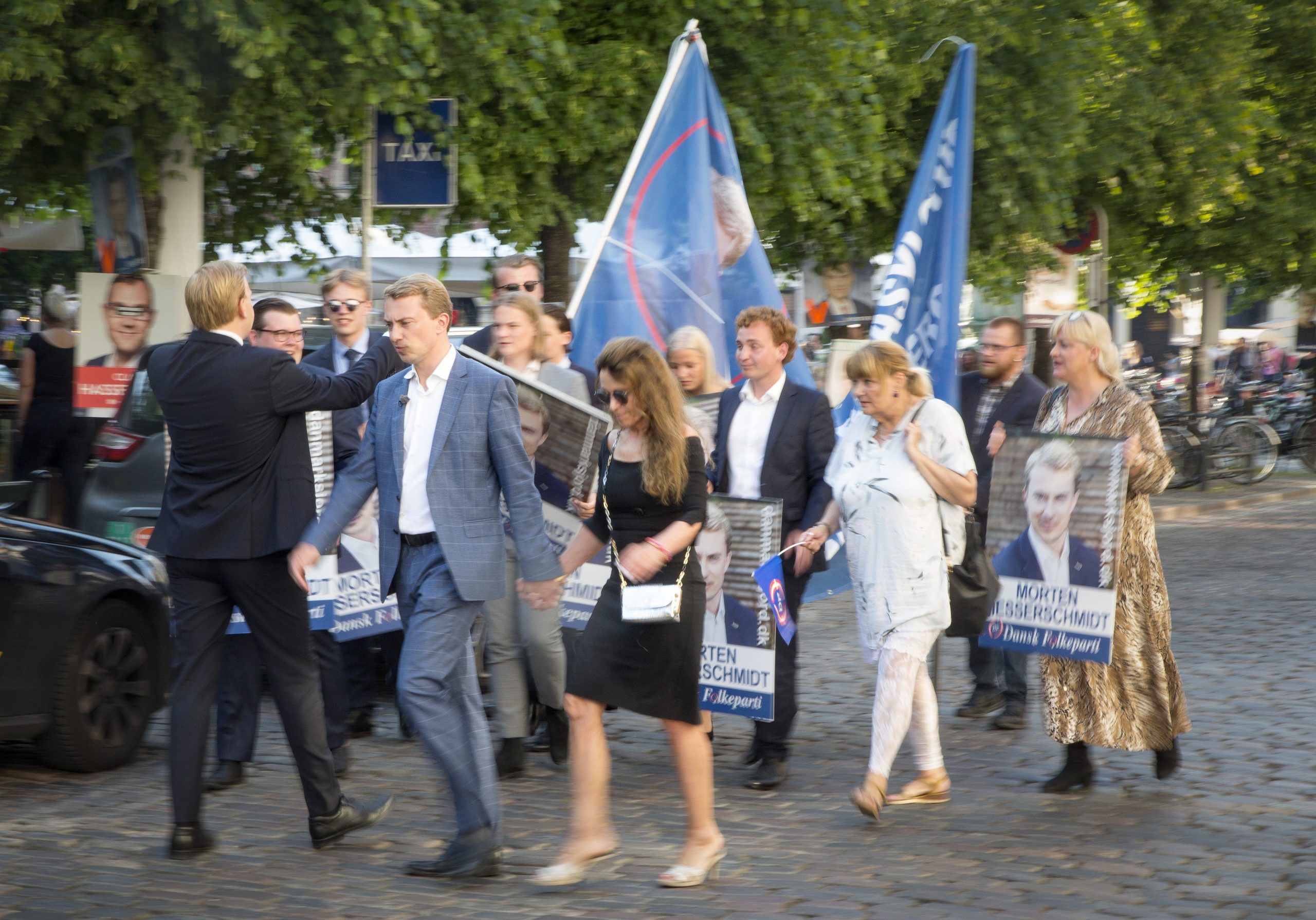The high-profile investigation of Dansk Folkeparti politician Morten Messerschmidt’s misuse of EU funds has been ongoing since 2015, both in the EU and more recently by the Bagmandspolitiet in Denmark.
READ MORE: Morten Messerschmidt trial begins
A grenade was thrown into the proceedings this April, when several media outlets came into possession of the indictment against Messerschmidt which revealed he is accused not just just fraud but also forgery.
Messerschmidt vehemently denies the accusations of fraud. “Of course, I disagree that we have done something illegal, and I therefore look forward to fighting that case in court,” he said on Thursday.
The trial, now underway in Denmark, is due to run until tomorrow. Ahead of the sentencing on Friday, here are the major milestones of the case.
What’s Meld? What’s Feld?
The so-called ‘Meld og Feld’ case concerns the use of public funds by the EU alliance ‘Movement for a Europe of Liberties and Democracy’ (MELD) and its affiliate fund Feld, whose task was to “contribute to the European political debate”. Meld brought together Eurosceptic groups from across the EU – including Dansk Folkeparti – under one united party front.
Suspicion was sparked in October 2015 when EU parliamentarian Rikke Karlsson from Dansk Folkeparti resigned in protest at a disagreement with Messerschmidt, her colleague at the time, over the opaque use of Meld og Feld funds in the EU.
The European Parliament responded with an external audit of Meld and Feld’s finances, which concluded that Dansk Folkeparti owed a repayment of 2.9 million kroner to the EU.
It appeared that while Messerschmidt had been helming Meld, public EU funds had been spent on national election campaigns in Denmark – violating the rule that EU money can only be used for EP elections.
More controversy
In August 2016, when DF had paid back 1.6 million kroner, original whistleblower Karlsson reported Messerschmidt for identity theft. Her accusation that he misused her personal data on documents for Meld og Feld in 2014 led to Messerschmidt’s acknowledgement of his failings and ultimate resignation as chair.
Two months later, DR and Ekstra Bladet reported that from 2014 to 2015 Dansk Folkeparti illegally spent 200,000 kroner of EU support on the party’s summer group meetings. This prompted the EU anti-fraud unit, OLAF, to start asking questions, and Messerschmidt to take indefinite sick leave due to stress.
In October 2019, OLAF concluded its investigation and determined that unjustified payments had indeed taken place. The case was handed over to the Danish Bagmandspoliti – the Public Prosecutor for Special Economic and International Crime (SØIK). As the SØIK investigation got underway, the media went quiet. An update was promised in the first half of 2021.
What’s happening now?
In April 2021, Messerschmidt’s defence lawyer and the Public Prosecutor’s Office announced that the DF politician was being prosecuted for misuse of EU funds under section 289a of the Penal Code – a charge which carries a possible sentence of one and a half years in prison.
Nevertheless, Messerschmidt, speaking to TV2, maintains he is “convinced [he has] done nothing wrong”.
A series of EP and DF politicians have been called to the witness stand over the past week to, amongst other things, verify potentially forged signatures and falsified documents.
Antonio Gambetta Vianna of the Italian party Liga Nord, when presented with a document he had allegedly signed but which is suspected to be a forgery, responded “that’s not my signature”.
Earlier in the case, Romanian Meld member Cristian Radulescu also claimed that he did not recognise his signature on the party registration form. Both Rikke Karlsson and Jørn Dohrmann testified they were registered without their knowledge. Messerschmidt is accused of orchestrating all these forgeries.
On Wednesday, Judge Søren Holm Seerup predicted the court will reach a judgement by 15:00 on Friday. After a veritable judicial and political saga spanning six years, it’s likely that the outcome will definine Messerschmidt’s future in Danish politics.
















